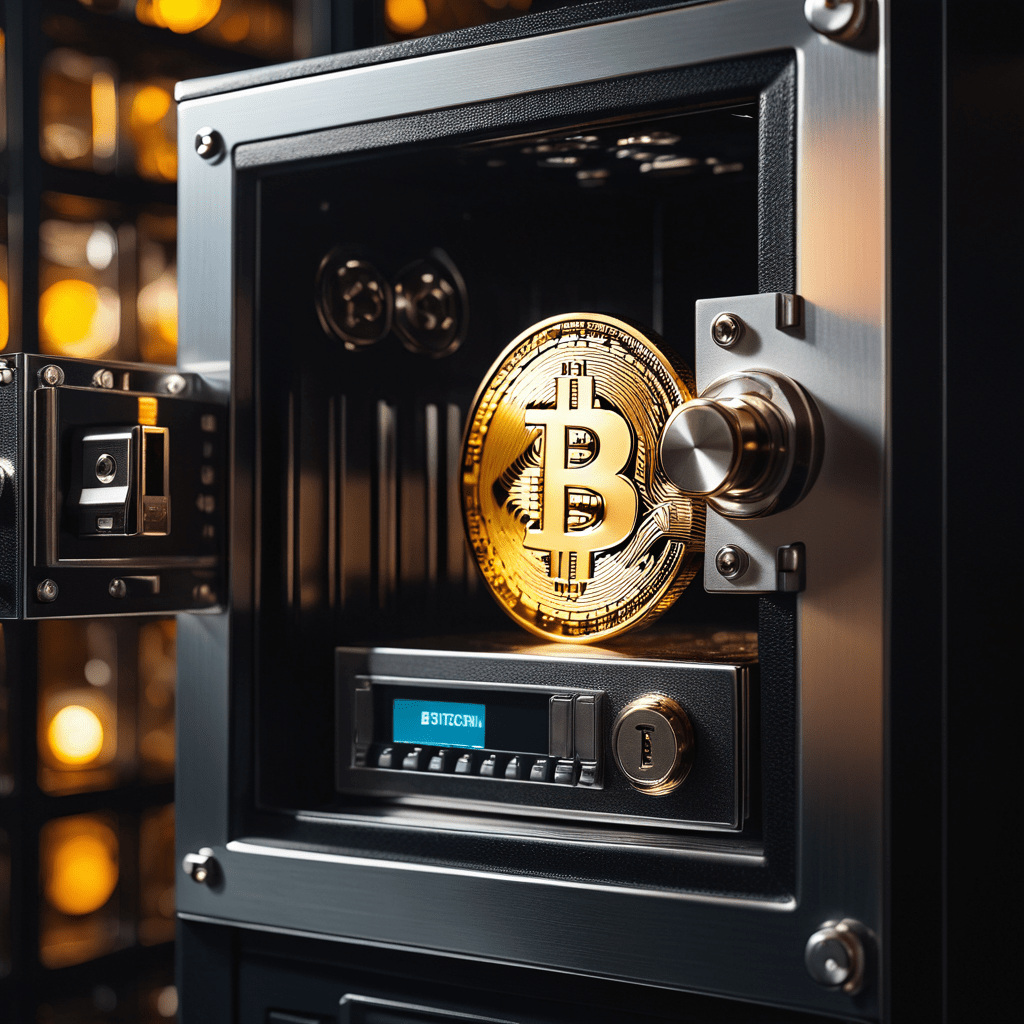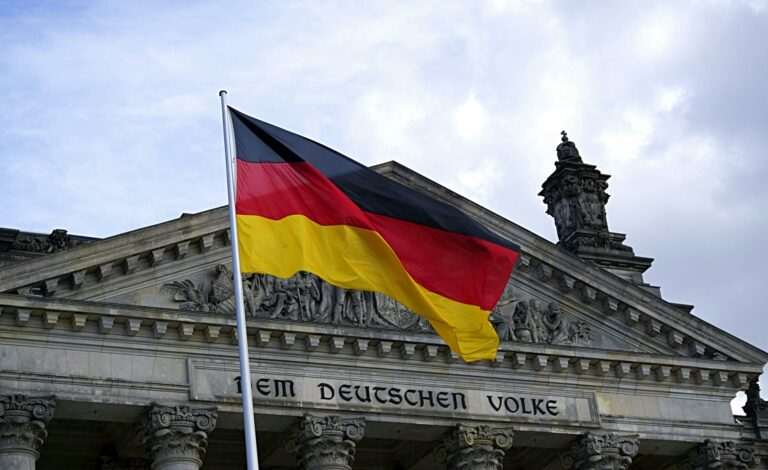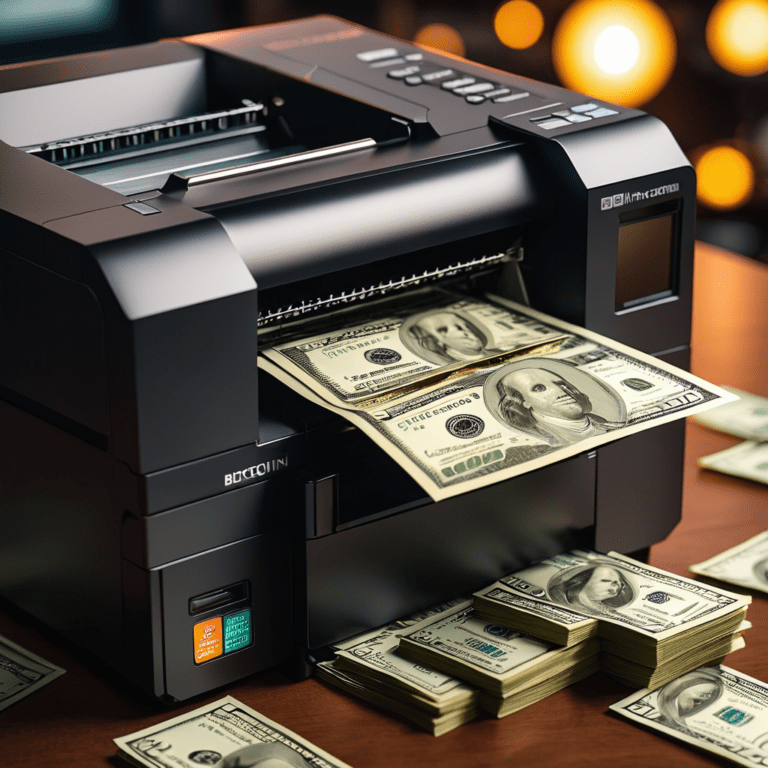Central Banks’ Choice: Buy Gold or Bitcoin? Tom Loungo and Bob Coleman Discuss
As the global financial landscape evolves, central banks are increasingly faced with the question of whether to invest in traditional safe-haven assets like gold or embrace emerging digital currencies like Bitcoin. Tom Luongo and Bob Coleman, two respected voices in the precious metals and cryptocurrency spaces, offer their insights on this critical issue. Their discussion sheds light on the factors driving central bank decisions when it comes to whether to buy gold or Bitcoin.
Why Central Banks Are Considering Buying Gold or Bitcoin
Central banks have traditionally relied on gold as a reserve asset, but the rise of Bitcoin has introduced a new potential store of value. The debate over whether central banks buy gold or Bitcoin centers on several key factors:
- Preservation of wealth
- Hedging against inflation
- Diversification of reserves
- Technological innovation
- Geopolitical considerations
Tom Luongo argues that while gold remains the primary choice for most central banks, Bitcoin is gaining traction as a complementary asset. Bob Coleman, on the other hand, emphasizes the enduring appeal of gold and its proven track record as a reliable store of value.
The Case for Central Banks Buying Gold
Gold’s Historical Role in Central Bank Reserves
Gold has been a cornerstone of central bank reserves for centuries. Its physical properties, scarcity, and universal recognition make it an attractive asset for preserving wealth over the long term. When discussing whether central banks buy gold or Bitcoin, it’s essential to consider gold’s established position in the global financial system.
Tom Luongo points out that gold’s role in central bank reserves has evolved over time:
“Gold is no longer just about backing currencies. It’s about having a neutral asset that can’t be manipulated by other central banks or governments. This is why we’re seeing increased gold buying by central banks, especially from countries looking to reduce their reliance on the US dollar.”
Advantages of Central Banks Buying Gold
There are several reasons why central banks continue to favor buying gold over Bitcoin:
- Proven track record: Gold has demonstrated its ability to maintain value over centuries.
- Physical tangibility: Unlike Bitcoin, gold is a physical asset that can be stored and easily transferred.
- No counterparty risk: Gold doesn’t rely on any external system or network to maintain its value.
- Universal acceptance: Gold is recognized and valued globally, making it easy to trade or use as collateral.
- Regulatory clarity: The legal and regulatory framework for gold is well-established, unlike the evolving landscape for cryptocurrencies.
Bob Coleman emphasizes the importance of these factors when central banks consider either to buy gold or Bitcoin:
“Central banks need stability and certainty. Gold provides that in a way that Bitcoin, with its volatility and regulatory uncertainties, simply can’t match at this point.”
Recent Trends in Central Bank Gold Buying
The trend of central banks buying gold has accelerated in recent years. According to the World Gold Council, central banks added 1,136 tons of gold to their reserves in 2022, the highest level of annual purchases since 1967. This surge in gold buying by central banks underscores the continued relevance of the precious metal in the global financial system.
Luongo notes that this trend is likely to continue:
“We’re seeing a shift in the global monetary order, and gold is playing a crucial role. Central banks, especially those in emerging markets, are diversifying away from the US dollar and into gold. This isn’t just about whether to buy gold or Bitcoin – it’s about rebalancing the global financial system.”
The Case for Central Banks Buying Bitcoin
Bitcoin’s Potential as a Digital Store of Value
While gold has a long history as a reserve asset, Bitcoin offers unique properties that are attracting attention from central banks. As the debate over whether central banks buy gold or Bitcoin intensifies, proponents of Bitcoin argue that its digital nature and fixed supply make it an ideal store of value for the digital age.
Advantages of Central Banks Buying Bitcoin
Proponents of Bitcoin highlight several advantages for central banks considering buying the digital currency:
- Digital scarcity: Bitcoin’s fixed supply of 21 million coins ensures its scarcity.
- Ease of transfer: Bitcoin can be sent anywhere in the world quickly and at low cost.
- Divisibility: Bitcoin can be divided into tiny fractions, making it highly flexible.
- Programmability: Bitcoin’s underlying blockchain technology allows for advanced financial applications.
- Potential for high returns: Bitcoin’s historical price appreciation offers the potential for significant gains.
Tom Luongo acknowledges these potential benefits while cautioning that central banks may be hesitant to fully embrace Bitcoin:
“There’s no doubt that Bitcoin offers some compelling advantages. However, central banks are inherently conservative institutions. The decision to start buying gold or Bitcoin isn’t just about the assets themselves – it’s about the broader implications for monetary policy and financial stability.”
Challenges for Central Banks Buying Bitcoin
Despite its potential advantages, central banks face several challenges when considering buying Bitcoin:
- Volatility: Bitcoin’s price can fluctuate wildly, which may be unacceptable for conservative central bank reserves.
- Regulatory uncertainty: The legal status of Bitcoin varies across jurisdictions, creating potential risks.
- Custody and security: Safely storing large amounts of Bitcoin requires specialized knowledge and infrastructure.
- Public perception: Some may view central bank Bitcoin purchases as endorsing a potentially speculative asset.
- Limited track record: Compared to gold, Bitcoin has a very short history as a store of value.
Bob Coleman emphasizes these challenges in the debate over central banks buying gold or Bitcoin:
“While Bitcoin has some interesting properties, it’s still a relatively new and untested asset. Central banks need to consider not just the potential benefits, but also the risks and challenges associated with holding Bitcoin as a reserve asset.”
Central Banks Buy Gold or Bitcoin?: A Comparative Analysis
Store of Value: Gold vs. Bitcoin
When central banks consider whether to buy gold or Bitcoin, one of the primary factors they evaluate is each asset’s effectiveness as a store of value. Gold has a millennia-long track record of preserving wealth, while Bitcoin has shown impressive growth in its relatively short existence.
Tom Luongo offers his perspective on this comparison:
“Gold has proven itself as a store of value over thousands of years. Bitcoin, while promising, is still in its infancy. Central banks buying gold or Bitcoin need to weigh the long-term stability of gold against the potential upside of Bitcoin.”
Liquidity and Market Depth
Another crucial factor in the debate over whether central banks buy gold or Bitcoin is the liquidity and market depth of each asset. Gold benefits from a well-established global market with high liquidity, while Bitcoin’s market is still developing but has shown remarkable growth.
Bob Coleman highlights the importance of liquidity for central bank reserves:
“Central banks need to be able to buy and sell large quantities of assets without significantly moving the market. Gold’s deep and liquid market makes it ideal for this purpose. Bitcoin’s liquidity has improved, but it’s still not at the level required for large-scale central bank operations.”
Technological Considerations
The technological aspects of gold and Bitcoin play a significant role in the decision-making process for central banks considering buying these assets. Gold’s physical nature contrasts sharply with Bitcoin’s digital infrastructure.
Tom Luongo, however, notes that gold’s simplicity may be an advantage:
“While Bitcoin’s technology is impressive, there’s something to be said for the simplicity of gold. Central banks buying gold don’t need to worry about software updates, network attacks, or technological obsolescence.”
The Future of Central Bank Reserves: Buy Gold or Bitcoin, or Both?
Diversification Strategies for Central Banks
As the debate over whether central banks buy gold or Bitcoin continues, many experts suggest that a diversified approach may be the most prudent strategy. By holding both gold and Bitcoin, central banks could potentially benefit from the unique advantages of each asset while mitigating their respective risks.
Tom Luongo shares his thoughts on this approach:
“I wouldn’t be surprised to see some forward-thinking central banks start to allocate a small portion of their reserves to Bitcoin while maintaining significant gold holdings. This allows them to hedge their bets and adapt to the changing financial landscape.”
Geopolitical Implications of Central Banks Buying Gold or Bitcoin
The choice between whether to buy gold or Bitcoin has significant geopolitical implications for central banks. Gold has long been associated with national sovereignty and independence from the global financial system dominated by the US dollar. Bitcoin, on the other hand, represents a decentralized alternative that could potentially reduce reliance on any single national currency.
Bob Coleman highlights the geopolitical considerations:
“Central banks buying gold often do so to reduce their dependence on the US dollar. Bitcoin could serve a similar purpose, but its decentralized nature may be seen as both an advantage and a potential threat to central bank authority.”
Regulatory Developments and Their Impact
The regulatory landscape surrounding Bitcoin and other cryptocurrencies is rapidly evolving, which could significantly impact central banks’ decisions about buying gold or Bitcoin. While gold operates within a well-established legal framework, the regulatory status of Bitcoin varies widely across different jurisdictions.
Tom Luongo comments on the regulatory challenges:
“One of the biggest hurdles for central banks considering buying Bitcoin is the uncertain regulatory environment. Until there’s more clarity and consistency in cryptocurrency regulations globally, many central banks will likely stick to gold as their primary alternative reserve asset.”
Case Studies: Central Banks Buy Gold or Bitcoin
El Salvador’s Bitcoin Adoption
In 2021, El Salvador became the first country to adopt Bitcoin as legal tender, effectively making it a part of the central bank’s reserves. This bold move has been closely watched by other central banks considering to either buy gold or Bitcoin.
Tom Luongo offers his perspective on El Salvador’s decision:
“El Salvador’s Bitcoin adoption is a fascinating experiment. While it’s too early to declare it a success or failure, it’s certainly forcing other central banks to take a closer look at the potential of cryptocurrencies alongside traditional assets like gold.”
China’s Digital Yuan and Gold Reserves
China has been at the forefront of developing a central bank digital currency (CBDC) with its digital yuan, while also continuing to accumulate gold reserves. This dual approach provides an interesting case study in how central banks might balance traditional and digital assets.
Bob Coleman comments on China’s strategy:
“China’s approach of developing a CBDC while also buying gold shows that they’re preparing for multiple scenarios. It’s a reminder that the debate over central banks buying gold or Bitcoin isn’t necessarily an either/or proposition – some may choose to pursue both traditional and digital assets.”
Expert Predictions: The Future of Central Bank Reserves
Short-term Outlook for whether Central Banks Buy Gold or Bitcoin
In the short term, most experts agree that gold will continue to dominate central bank reserves, with Bitcoin potentially gaining a small foothold in more progressive institutions.
Tom Luongo shares his short-term prediction:
“Over the next few years, I expect we’ll see continued strong demand for gold from central banks. We might also see a few central banks dip their toes into Bitcoin, but it will likely remain a small portion of their overall reserves.”
Long-term Projections for Gold and Bitcoin in Central Bank Reserves
Looking further into the future, the picture becomes less clear. The long-term role of Bitcoin in central bank reserves will likely depend on its continued adoption, technological development, and regulatory evolution.
Navigating the “Buy Gold or Bitcoin” Debate
As central banks grapple with the decision of whether to buy gold or Bitcoin, it’s clear that both assets have their strengths and weaknesses. Gold’s long history and stability continue to make it an attractive option for conservative central bank reserves. Bitcoin, with its digital nature and potential for high returns, offers an intriguing alternative for forward-thinking institutions.
Tom Luongo summarizes the current state of the debate:
“The question of whether central banks buy gold or Bitcoin isn’t going away anytime soon. While gold remains the primary choice for most central banks, Bitcoin is forcing them to reconsider their approach to reserve assets. The most successful central banks will likely be those that can effectively balance traditional and digital assets in their reserves.”
Bob Coleman offers a final thought:
“Ultimately, the decision to buy gold or Bitcoin comes down to each central bank’s specific needs, risk tolerance, and vision for the future. What’s clear is that the landscape of central bank reserves is evolving, and institutions need to be prepared for a world where both traditional and digital assets play important roles.”
As the global financial system continues to evolve, the debate over whether central banks buy gold or Bitcoin will undoubtedly intensify. By carefully considering the unique properties, advantages, and challenges of each asset, central banks can make informed decisions that best serve their nations’ economic interests in an increasingly complex and digital world.








2 Comments